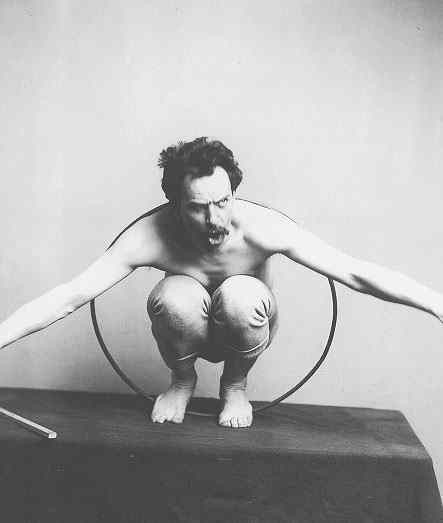When people find out that my educational background and most of my research interests are in anthropology, I often get looks of confusion. "Then why are you... ?" questions hang in the air. The answer, "Because you're clueless," seems so obvious to the other person that they rarely formulate the question out loud.
That's probably a good thing most of the time, because I'm not sure I have a good answer most of the time. When it comes to, "Then why are you writing?" I actually do have a good answer. In fact, I have a lot of good answers. Some of them are the obvious sort of appeal to an interest in the human experience. Some of them are a little more precise.
One of the most important things to me about anthropology is the anthropological method, which has researchers moving from an outside observer's descriptive stand-point toward an insider's experiential perspective. Both are important, and both most be included.
Another tenet of American anthropology, ever since the days of Franz Boas, has been relativism. What that means for anthropology, especially in the theoretical vein known as historical particularism, is that every culture should be measured against its own ruler and understood on its own terms. This does not preclude the researcher from holding personal value judgments at odds with that culture's ruler. It simply means that, in a very real way, you put yourselves in the mental and cultural shoes of the folks you're trying to understand.
This anthropological approach has really come to define how I engage with people. I try to move from the description and analysis that I can do on the outside to come closer to an understanding of their real experience. That's nearly impossible to do with real people, one-on-one in the context of daily interaction. One of the things that I get personally out of writing is a chance to do just this thing. Developing characters in writing is my chance to take those external descriptives to create a model of a person and then I toss a narrative at them to get an idea of how they actually experience things. It's one of the reasons why I've come to enjoy writing in the first person so much, and why I place such value on voice.
It's not really the same thing as doing anthropology, but it's close enough to get me by.
.Nevets.


I can't imagine asking the questions you've been asked. With only three anthropology courses at the University level (before I switched to plain old English and Sec. Ed. major) I think anthropology is a perfect fit for a writer for all the reasons you've listed above.
ReplyDeleteThat wouldn't have been my first question. However, I do understand writers. Don't most anthropologists write? I think that learning about the past and how often cultures and that mistakes of cultures often repeat itself makes better writers.
ReplyDeleteNever mind anthropology (although that sounds very interesting) - where have you BEEN all this time? You missed our birthday!
ReplyDelete@Tyrean - I think a lot of people have a one-to-one correspondence in mind. Anthropologists do anthropology. Writing majors, or at least English majors, become writers. At least here in the States, the idea of liberal arts and higher education have begun to fall by the wayside and people seem to think more of college as a superty-duperty vocational school.
ReplyDelete@Clarissa - Most anthropologists do write! Most don't really write fiction. I think part of the problem is that a lot people don't really even know what anthropologists do do. lol
@Frances - I know! I'm going to try to put together a post with updates. I just get tired of hearing my own excuses. lol